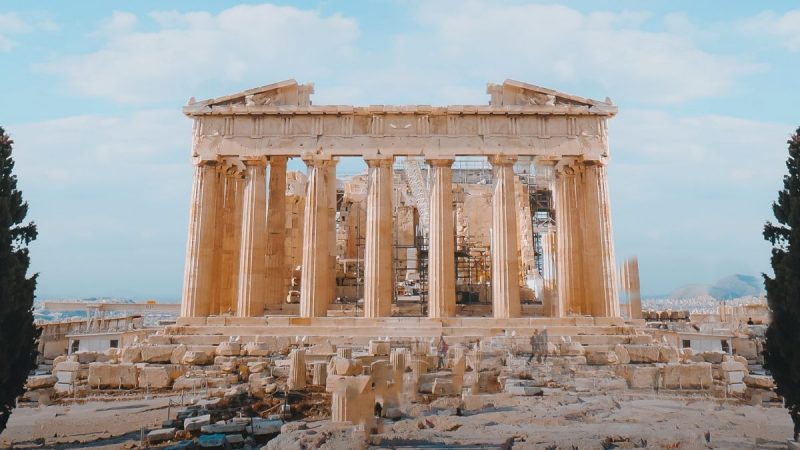The Acropolis of Athens, one of the most visited tourist sites in Greece, recently faced temporary closures due to unprecedented heatwaves. The tourist site was closed to the public on Wednesday during the country’s warmest hours.
Acropolis Closes Due To Heatwaves
Moon over the Parthenon temple on the Acropolis of Athens, Greece. pic.twitter.com/NoYybtmyPz
— Art or Other Things (@ArtorOtherThing) June 12, 2024
The UNESCO-listed archaeological monument would be closed from noon to 5:00 pm on Wednesday and Thursday due to high temperatures of 43 degrees Celsius, according to the cultural ministry. The closures reflect a growing awareness of the impact of climate change. Of course, there is the necessity of adaptive measures to protect them.
These two days are expected to be the pinnacle of Greece’s annual heatwave. However, they could be prolonged, according to the ministry. Greece is known for its scorching summer temperatures. According to the Ministry of Climate Disaster and Civil Safety, there is a very high risk of fires in the Attica region surrounding Athens. The labour ministry has recommended public sector workers to work from home on Wednesday and Thursday. While schools will remain closed in several parts of the nation, including the capital.
During an unusually long two-week heatwave in July of last year, the Acropolis was forced to close. Nearly four million people visited the monument last year, setting a record. Cruise ship travellers who stopped at the nearby port of Piraeus contributed to the site’s increased popularity.
Impact of Heatwaves In Greece
The Parthenon, a temple dedicated to Athena, located on the Acropolis in Athens, is one of the most representative symbols of the culture and sophistication of the ancient Greeks. pic.twitter.com/kENa8EUonk
— Cinesthetic. (@TheCinestheticc) June 13, 2024
In recent years, Greece has experienced increasingly severe heatwaves, a consequence of global climate change. These extreme temperatures pose multiple threats to the Acropolis. The marble structures, while resilient, can suffer from thermal stress. Moreover, the intense heat accelerates the erosion of these ancient stones. For visitors, the heat poses serious health risks. The Acropolis, with its steep paths and limited shade, becomes particularly hazardous during heatwaves. Tourists, often unaccustomed to such extreme weather, are vulnerable to heat exhaustion and heat stroke. Recognizing these dangers, Greek authorities have taken the proactive step of closing the site during peak heat periods to prevent accidents and ensure the well-being of visitors.
Limiting access during peak temperatures is a straightforward but effective way to minimize the impact on both the monuments and the tourists. However, it’s now been regularly hit by searing summer temperatures.
Cover image credits: Canva
First Published: June 13, 2024 1:37 PM




